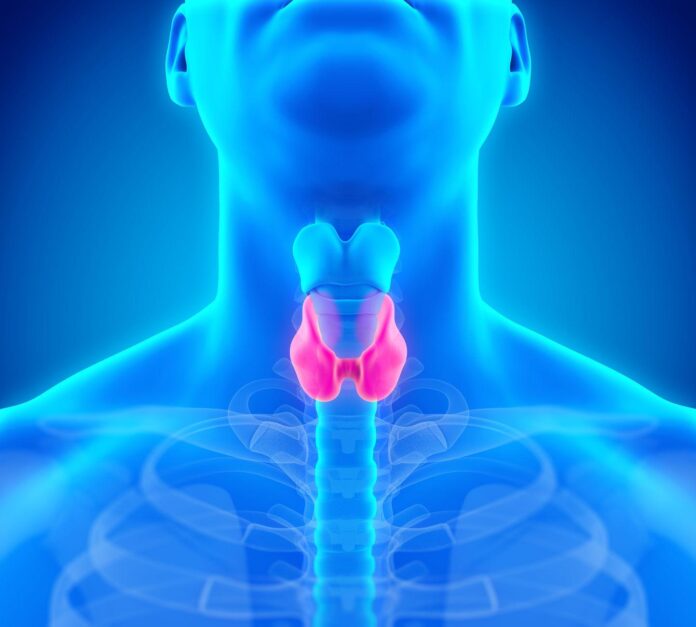
Hyperthyroidism is a condition in which the thyroid gland produces too much of the hormone thyroxine. This can lead to a variety of symptoms that can significantly impact a person’s quality of life. Understanding the symptoms of hyperthyroidism is important in order to seek appropriate medical treatment and management. In this article, we will explore the common symptoms of hyperthyroidism and how they can affect an individual’s health.
What is hyperthyroidism?
Before diving into the symptoms of hyperthyroidism, it’s important to understand what this condition is. The thyroid gland, located in the neck, produces hormones that play a crucial role in regulating the body’s metabolism. When the thyroid gland becomes overactive and produces too much thyroxine, it can lead to hyperthyroidism. This can cause a wide range of symptoms that affect various systems in the body.
The symptoms of hyperthyroidism can be subtle and develop gradually, making it important to be aware of the signs that may indicate an overactive thyroid. Here are some of the most common symptoms of hyperthyroidism:
1. Rapid heartbeat and palpitations
One of the hallmark symptoms of hyperthyroidism is a rapid heartbeat, also known as tachycardia. This can cause palpitations, a sensation of having a racing or irregular heartbeat. Individuals with hyperthyroidism may also experience a pounding heart, chest discomfort, or shortness of breath. These symptoms are often a result of the increase in metabolic rate caused by the excess thyroxine in the body.
2. Unexplained weight loss
Despite an increased appetite, people with hyperthyroidism may experience unexplained weight loss. This can be due to the high metabolic rate that causes the body to burn more calories than usual, leading to a decrease in body weight. Additionally, hyperthyroidism can also lead to an increase in bowel movements, further contributing to weight loss.
3. Nervousness and anxiety
Excess thyroxine in the body can also affect mental wellbeing, leading to symptoms such as nervousness, anxiety, and irritability. Some individuals may also experience mood swings, difficulty concentrating, or a feeling of restlessness. These symptoms can significantly impact a person’s quality of life and ability to function in their daily activities.
4. Tremors and muscle weakness
Hyperthyroidism can lead to trembling or shaking of the hands and fingers, as well as muscle weakness. This can make it difficult to perform tasks that require fine motor skills, such as writing or holding objects steady. Muscle weakness may also extend to the larger muscle groups, leading to a general feeling of fatigue and lack of strength.
5. Heat intolerance and increased sweating
People with hyperthyroidism may have difficulty tolerating heat and may sweat excessively, even in cooler temperatures. This can be due to the high metabolic rate and increased production of heat within the body. Heat intolerance can make it uncomfortable to be in warm environments and can lead to symptoms such as flushing, sweating, and feeling overheated.
6. Changes in menstrual cycle
In women, hyperthyroidism can lead to changes in the menstrual cycle, including lighter or irregular periods. Some women may also experience a complete absence of menstruation, a condition known as amenorrhea. These changes are a result of the impact of excess thyroxine on the reproductive system and hormone regulation in the body.
7. Enlarged thyroid gland
In some cases, hyperthyroidism can cause the thyroid gland to become enlarged, a condition known as a goiter. This may cause a visible swelling in the neck, as well as difficulty swallowing or breathing. A goiter can be a result of various thyroid disorders, including autoimmune conditions such as Graves’ disease.
Seeking medical attention for hyperthyroidism
Recognizing the symptoms of hyperthyroidism is the first step in seeking appropriate medical attention and management. If you suspect that you or someone you know may have an overactive thyroid, it’s important to consult with a healthcare professional for a thorough evaluation and diagnosis. A healthcare provider can conduct a physical examination, run blood tests to measure hormone levels, and perform imaging studies to assess the thyroid gland.
Once a diagnosis of hyperthyroidism is confirmed, treatment options may include medication to regulate hormone levels, radioactive iodine therapy to reduce thyroid activity, or surgery to remove part or all of the thyroid gland. Management of hyperthyroidism may also involve lifestyle adjustments, such as dietary changes and stress management techniques.
In conclusion, hyperthyroidism can cause a variety of symptoms that can significantly impact an individual’s health and wellbeing. Recognizing the signs of an overactive thyroid is crucial in seeking appropriate medical attention and management. By understanding the symptoms of hyperthyroidism and seeking professional care, individuals can take proactive steps towards managing their condition and improving their overall quality of life. If you suspect that you may have hyperthyroidism, it is important to consult with a healthcare professional for a thorough evaluation and personalized treatment plan.












